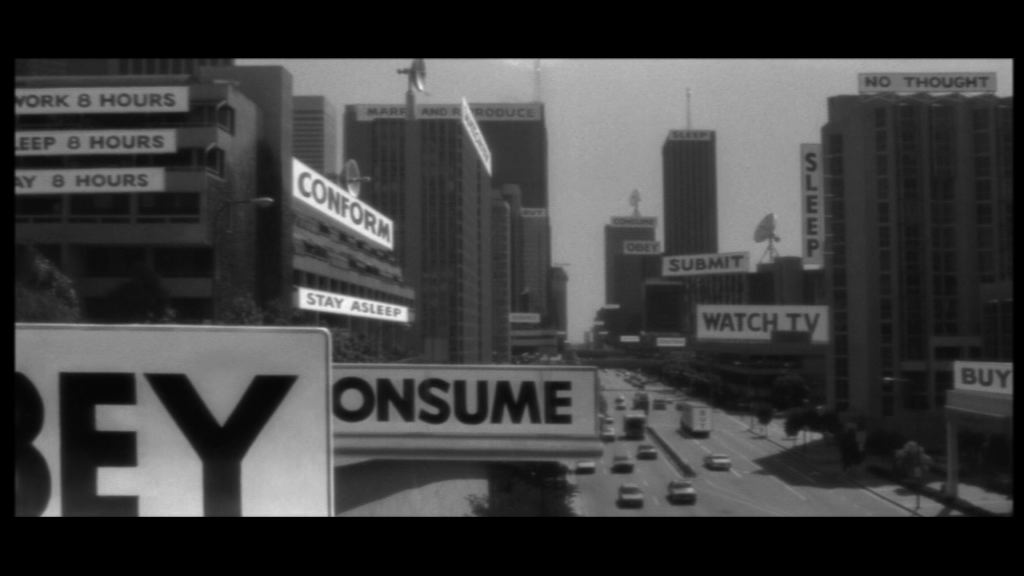Althusser - Ranciere Controversy Part II
Struggle
The main problem with Althusser's theory for Ranicere is this:
[I]deology for Althusser is quite capable of possessing the same status as that conferred on the State by classical metaphysical thought. And his analysis is capable of reinstating the myth of an ideological state of nature...Ideology is not seen from the start as the site of struggle. It is not related to two antagonists but to a totality of which it forms a natural element.
I remember reading the ISA's essay in high school and being utterly baffled. I remember reading it last year in Western Marxism, and after going over my notes, Althusser seemed then to have offered a much more rigorous and cogent method for systematically engaging the paradoxes surrounding the problem of false consciousness, who's doing the duping, is it more than or other than mere duping, what's the role of desire and so on. But I also remember staring at sentences being utterly confused, such as the one on the question of stepping outside of ideology. I found reading the essay this year to be much easier, yet it did not sit well with me. The turbulent cascading of new publics, the over-saturation of ideological content, the hybridization of both content and the relations of knowledge production etc.. lead me ot believe that Marxist criticism cannot transcend the contemporary relations of production if it remains solely a question of the proper, scientific interpretation of the entire unfolding of events, of the revolutions, and their repression, before your eyes. One need not repeat Thesis 11, to Althusser it was tainted by a humanist naivete.
 I don't think Althusser necessarily deserves as harsh of a treatment as Ranciere does, but the wellspring of Ranciere's vitriol also produced some more rigorous gems. By turning ideology into a natural element of man's environment, Althusser effectively conceals the profoundly basic determination of class antagonism - the relationship between labourers and non-labourers is what has characterized and determined all societies at their most basic level; granted the ways in which this determination occurs changes in accord with the evolution of societies.
I don't think Althusser necessarily deserves as harsh of a treatment as Ranciere does, but the wellspring of Ranciere's vitriol also produced some more rigorous gems. By turning ideology into a natural element of man's environment, Althusser effectively conceals the profoundly basic determination of class antagonism - the relationship between labourers and non-labourers is what has characterized and determined all societies at their most basic level; granted the ways in which this determination occurs changes in accord with the evolution of societies.
Althusser takes the function of the dominant ideology to be the function of Ideology. By understanding Science as the Other of Ideology, Althusser reduces the class struggle to vigilante criticism. Even if this is hyperbolic, or wrong, or unscientific in reference to Althusser, I don't think its wrong to say that those who adopt the more orthodox or structuralist forms of ideological criticism are far better at saying no, than nodding yes, than affirming a sacred yea-saying, than tasting the ecstasy of communion. Paranoia runs deep within Marxist veins, the cultural critics are like a weird, warped reflection of Ron Paul - only less witty.
By a process which detaches ideology form the system of instances, and erases the main division of the ideological field to create a psace in Marxist theory which it then shars out between science and ideology. The functioning of the Science/Ideology opposition depends on the re-establishment of a space homologous to that which the whole metaphysical tradition assumes by opposing Science to its Other; thus supporting the closure of a universe of discourse, divided into the realms of the true and the false, into the world of Science and that of its Other (opinion, error, illusion, etc.). If one fails to grasp that ideology is fundamentally the site of struggle, of a class struggle, it immediately slips into this place determined by the history of metaphysics: the place of the Other of Science (Ranciere, 4).
Labels: Althusser, cyber rhetoric, Cyberhetoric, Ideological State Apparatuses, Ideology, Ideology Critique, ISA, Jacques Rancière, Karl Marx, Louis Althusser, Marxist literary criticism, Philosophy, Western Marxism










